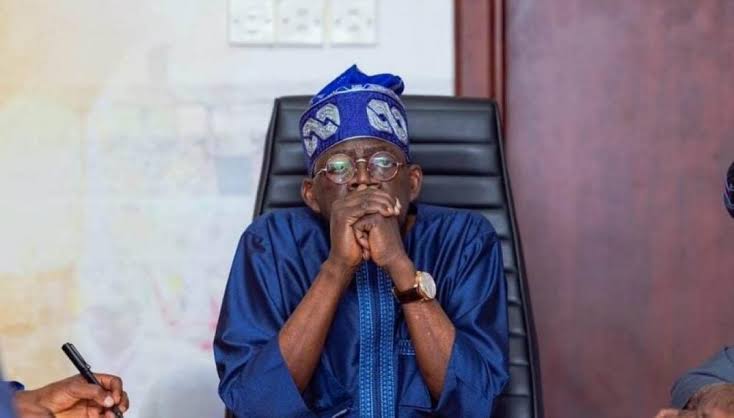An Abuja-based human rights and Constitutional lawyer, Mr. Emmanuel Ekpenyong, has dragged President Bola Tinubu and the Attorney-General of the Federation (AGF) and Minister of Justice, Prince Lateef Fagbemi (SAN) to the Court of Appeal, Abuja Division, seeking the determination of the extent of his fundamental right to life guaranteed under Section 33 of the 1999 Constitution amidst alleged increasing cases of extrajudicial killings in the country.
Ekpenyong filed the appeal after Justice Nkeonye Maha of a Federal High Court, Abuja dismissed his fundamental rights enforcement suit for lack of locus standi (legal right) to institute the matter.
The lawyer had alleged that the increased and wanton loss of lives in Nigeria in recent times has put him in reasonable apprehension that his right to life, which the defendants in the suit were mandated to protect under Chapter VI of the Constitution, was likely to be contravened.
The lawyer had, in his originating summons, prayed the court to determine whether his right to life as enshrined in Section 33(1) of the 1999 Constitution (as amended) means the protection of his life beyond mere physical existence and extends to the right to live a meaningful, complete and dignified life.
“Whether the plaintiff’s right to life enshrined in Section 33(1) of the 1999 Constitution prohibits any unlawful acts of omission or commission by the Nigerian state, Nigerian police, other law enforcement agents and private individuals which are capable of terminating his life”, among others.
Ekpenyong, therefore, sought “an order of mandatory injunction compelling the defendants to take immediate steps to overhaul and reform the Nigerian police and other law enforcement agencies to incorporate forensic science in their criminal investigations and ensure that every unlawful death committed are thoroughly investigated and the culprit arraigned before a court of competent jurisdiction.
“An order of mandatory injunction compelling the defendants to take immediate steps to improve the remuneration and welfare package of the Nigerian police and other law enforcement agencies in Nigeria and reorient them on what the right to life entails and the extent of their powers in criminal investigations.”
In response to the suit, the President and the AGF, who were respondents in the suit, jointly filed a counter-affidavit and written address, contending that Ekpenyong’s supporting affidavit offended the provisions of Section 115(2) of the Evidence Act, 2011.
They argued that the lawyer had no locus standi to file the suit and had not made out a case to be granted the reliefs sought.
Justice Maha, who dismissed the suit, in a judgement delivered on May 6, 2022, awarded a N100, 000 cost against the lawyer.
But Ekpenyong in his appeal against the judgement of the trial court, urged the Appeal Court to hold that the judgment of the lower court amounted to a miscarriage of justice when it held that some paragraphs of his affidavit were incompetent and failed to determine the germane questions of law on the extent of his right to life under Section 33 of the Constitution.
The appellant who urged the court to hold that he has locus standi to institute the suit before the trial court, prayed the appellate court to hold that he has disclosed a reasonable cause of action against the respondents under Section 46 (1) of the constitution which entitles him to the reliefs sought.
The lawyer contended that his suit at the trial court was for the court to determine the extent of his right to life to enable him to take proactive steps to protect it now that he is alive.
Ekpenyong, who urged the appellate court to vacate the N100, 000 cost awarded against him, prayed the court to set aside the lower court’s judgment, allow his appeal and grant the reliefs sought in the originating summons.
The respondents, in their joint respondents’ brief, filed on July 18, 2023 by their counsel, O. A. Oloruntogbe in the Civil Appeals Department of the Federal Ministry of Justice, argued that the trial court was right in striking out part of the paragraphs in Ekpenyong’s affidavit for offending the rules of the Evidence Act, 2011, in Section 115 (2).
They argued that the identified offensive paragraphs are mostly opinions, prayers, legal arguments and conclusions, which are not allowed to be in affidavit evidence, mostly drawn from the lawyer’s imagination and devoid of any factual basis.
In his appellant’s reply brief filed on September 1, 2023, Ekpenyong argued that the need to protect the sanctity of the constitution and maintain the sacredness of fundamental human rights in Nigeria has made Nigerian courts to abandon the narrow view on locus standi in constitutional matters.
No date has been fixed for the hearing of the appeal.
READ ALSO FROM NIGERIAN TRIBUNE




